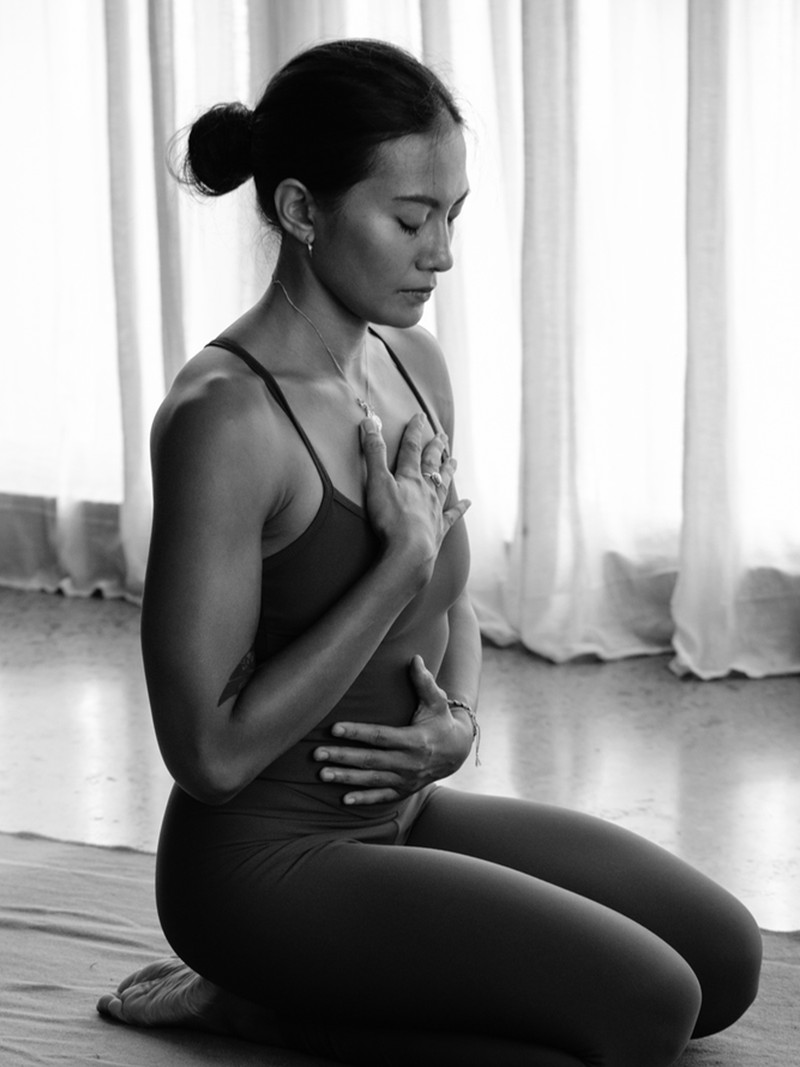Why Looking After This Key Organ Could Make All The Difference To Your Health
Build Lung Stamina
“Maintaining good lung health involves several daily habits. Activities such as walking, running, swimming and yoga enhance lung capacity and efficiency. Cardiovascular exercises also strengthen the muscles that help the lungs expand and contract, improving overall respiratory function.” – Dr Kajal Babamiri, GP specialist at CLNQ
Avoid Being Sedentary
"Regular physical activity and cardiovascular fitness contribute to a lower resting heart rate and optimised breathing rate. In contrast, sedentary lifestyles, age-related changes or the development of health conditions may lead to higher resting heart rates and altered breathing patterns.” – Dr Shyamal Patel, head of science at ŌURA
Reduce Indoor Air Pollution
“Beyond smoking, one of the worst habits for lung health is prolonged exposure to indoor air pollutants. This includes exposure to mould, dust mites, pet dander and chemicals from household cleaners or building materials. These pollutants can cause chronic irritation and inflammation of the airways, leading to conditions such as asthma and chronic bronchitis. Poor ventilation exacerbates this issue, trapping pollutants inside and continuously exposing the respiratory system to harmful substances.” – Dr Kajal
Maintain Daily Health Habits
“Regular daily exercise, preferably in fresh open air, natural open spaces is key. Of course, if this isn’t easily accessible to you, good respiratory health can be maintained in a gym environment. Try to avoid smoky atmospheres, such as areas with a lot of car fumes, and secondary smoking. This also feeds into the third and most-important habit: do not smoke or vape.” – Dr Tony Fincham, GP at Benenden Hospital, part of Benenden Health
Measure Your VO2Max
“VO2Max (maximal oxygen uptake) measures the maximum amount of oxygen an individual can use during intense, exhaustive exercise. It is commonly regarded as an athletic performance indicator, but it actually correlates well with longevity. Research has shown that low-intensity training performed at about 60-70% of your max heart rate can increase VO2Max, as it trains your heart and lungs to sustain activity at moderate intensities.” – Dr Shyamal
Drink up
“Staying hydrated is beneficial for the respiratory system. Drinking plenty of water helps keep the mucosal linings in the lungs thin, allowing for better function and easier breathing.” – Dr Kajal
Avoid Heavy Pollution
“If you’re a seasoned runner, consider taking routes that avoid heavily congested roads, so you avoid the high levels of toxins that you will likely breathe in. If you’ve never exercised before, though, make that first step and join a ‘Couch to 5k’ group.” – Dr Tony
Consider Enhanced Oxygenation
“If you have an existing respiratory condition. undergoing treatments such as Hyperbaric Oxygen Therapy has many benefits for medical conditions such as lung disease. This involves breathing pure oxygen in a pressurised room or chamber, which significantly increases the amount of oxygen in the blood. This enhanced oxygenation can accelerate healing processes and improve overall lung function.” – Dr Kajal.
Look At Your Family History
“Make choices and changes based on your own genetics, environment, and lifestyle. We are all very different people, so we’re not all starting from the same line. If you have family history of lung disease, for example, be proactive and visit your GP to get advice on any therapies, lifestyle changes, or medication that can support you in the long term.” – Dr Tony
Understand The Ageing Risks
“As we age, several natural factors can contribute to declining lung health. One significant factor is the gradual weakening of respiratory muscles, which makes it harder to breathe deeply and fully. The elasticity of lung tissues also decreases, reducing lung capacity and efficiency. The immune system's efficiency diminishes with age, increasing susceptibility to respiratory infections and illnesses such as pneumonia and bronchitis.” – Dr Kajal
For more information visit CLNQ.com, OURARing.com & Benenden.co.uk
DISCLAIMER: Features published by SheerLuxe are not intended to treat, diagnose, cure or prevent any disease. Always seek the advice of your GP or another qualified healthcare provider for any questions you have regarding a medical condition, and before undertaking any diet, exercise or other health-related programme.
DISCLAIMER: We endeavour to always credit the correct original source of every image we use. If you think a credit may be incorrect, please contact us at info@sheerluxe.com.






